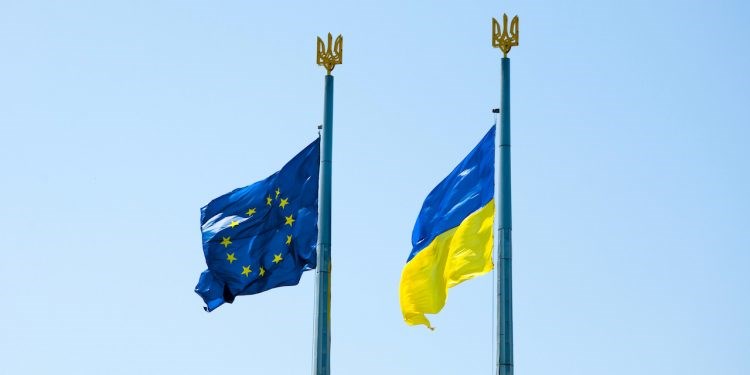Two EU members oppose Ukraine’s candidacy: Bloomberg
Bloomberg stated that Denmark and the Netherlands have substantial reservations about awarding candidate status to Kiev.
-

Bloomberg: Two EU members oppose Ukraine’s candidacy.
While the European Commission is expected to recommend that Ukraine be granted candidate status next week, Bloomberg reported on Thursday that Denmark and the Netherlands may oppose this step toward EU membership. According to reports, Danish officials are concerned about Ukraine's record on corruption and the rule of law.
Ukraine filed to join the EU in February, and European Commission President Ursula von der Leyen said in April that a decision on granting Kiev candidate status could be made in "a matter of weeks." While the commission is due to issue its verdict on Ukraine's candidacy next week, and EU leaders are expected to meet in Brussels one week later to address the topic, the process may not be as smooth as von der Leyen anticipated.
Read next: Ukraine EU membership to take 15-20 years: France EU minister
While the majority of EU member states are willing to approve candidate status for Ukraine, several – including the Netherlands – are opposed, according to Bloomberg.
Denmark has said that before Ukraine can be considered a candidate, it must "fundamentally improve its legislative and institutional framework" in the areas of democracy, the rule of law, human rights, minority protection, and anti-corruption policies, according to a diplomatic note seen by the news organization.
Kiev is “generally at a very early stage” regarding its readiness to join the bloc, the note continued.
"Ukraine is the most corrupt country in Europe and one of the world's most corrupt countries. Since the start of the present war with Russia, its leadership has been chastised for prohibiting political opposition and discriminating against Russian-speakers."
Read next: Ukraine's accession to EU may take decades: Macron
While a number of EU countries have cautioned that full EU membership for Ukraine may take many years, even the first step of candidate status could be “very far away,” Dutch Prime Minister Mark Rutte declared in an address to lawmakers in the Hague last month.
Rutte also warned that giving Ukraine a 'quick track' to membership, as several Eastern European countries and Ireland have advocated, would be unfair to aspirants such as Turkey and Montenegro, who have been candidates for decades.
Turkey, for example, filed for membership in the European Union in 1987 and received candidate status in 1999. Since then, membership talks have come to a halt.

 3 Min Read
3 Min Read











